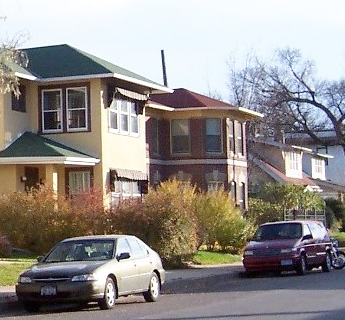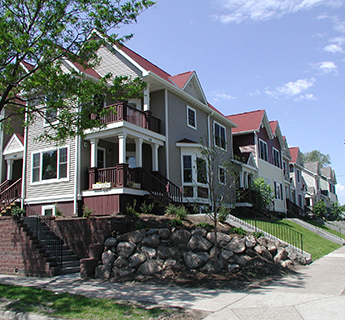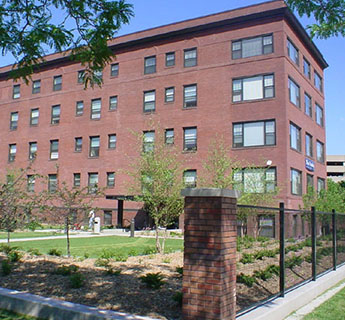Affordable Housing Production and Preservation: Produce housing units that meet the changing needs of Minneapolis residents in terms of unit sizes, housing types, levels of affordability, and locations while preserving existing housing using targeted, priority-based strategies.



Affordable housing is rental housing with rent and income restrictions (typically 60% of Area Median Income or below) or housing for homeownership with income restrictions (typically less than 80 percent of Area Median Income) as governed by local, state, and federal housing assistance programs. This is in comparison to Housing Affordability, which is access to homeownership or rental options based on housing price relative to household income. In Minneapolis, renters who qualify for affordable housing earning less than 30% of the Area Median Income ($28,300 per year), are one of the two largest groups of residents in the city after 100% AMI or greater homeowners ($94,300 per year).
Minneapolis has less affordable housing than it did 10 years ago, and production of affordable housing is not keeping pace with the loss. There is a great need for the creation of new legally binding affordable housing as well as for the preservation of existing legally binding and naturally occurring affordable housing (NOAH). This need outstrips the resources and tools that are currently available to produce and preserve affordable housing; meeting the need will require new and expanded tools and resources. Since 2000, Minneapolis has lost roughly 15,000 housing units that are considered affordable for those earning 50 percent of the area median income. This is despite the City producing or preserving 8,900 such housing units.
The loss of affordable units is compounded by decreasing wages and rising rents. The median income of renters is down 14 percent from 2000 while median rent has increased by 11 percent. This is further evidenced by the fact that 50 percent of all renters are cost-burdened and 74 percent of low-income renters are cost-burdened.
Another factor impacting housing in Minneapolis is that its residents continue to change, and along with that their housing needs and desires change.
 ACTION STEPS
ACTION STEPS
The City will seek to accomplish the following action steps to produce housing units that meet the changing needs of Minneapolis residents in terms of unit sizes, housing types, levels of affordability, and locations while preserving existing housing using targeted, priority-based strategies.
- Produce more affordable housing by expanding tools and resources, prioritizing funding to households earning at or below 30% and 50% of area median income.
- Pursue policies, tools and programs to ensure long-term housing affordability, such as requiring the maximum affordability term of at least 30 years for new affordable housing construction.
- Strengthen strategies to retain naturally occurring affordable housing, such as reducing property taxes and increasing funding for acquisition.
- Create strategies to retain naturally occurring affordable housing and existing housing types that are typically not constructed in the marketplace, such as, single room occupancy, shared housing, co-housing, cooperative housing, and 3+ bedroom units for families.
- Encourage affordable living features in residential development that result in lower transportation costs and reduce monthly utility bills for its residents.
- Ensure an equitable spacing across the city of affordable housing, supportive housing, shelters, and government placed residents.
- Create strategies that reduce the cost of affordable housing, such as design competitions for low cost housing using innovative techniques like prefab and manufactured housing, 3-D printed housing and tiny houses.
- Provide density bonuses and other incentives for the construction of affordable housing.
- Preserve, improve, and expand public housing that serves the lowest-income people in our city.
- Support and promote housing options that allow for aging in place, both within a community and at home.
- The City of Minneapolis is committed to preserving and increasing our public housing stock.

